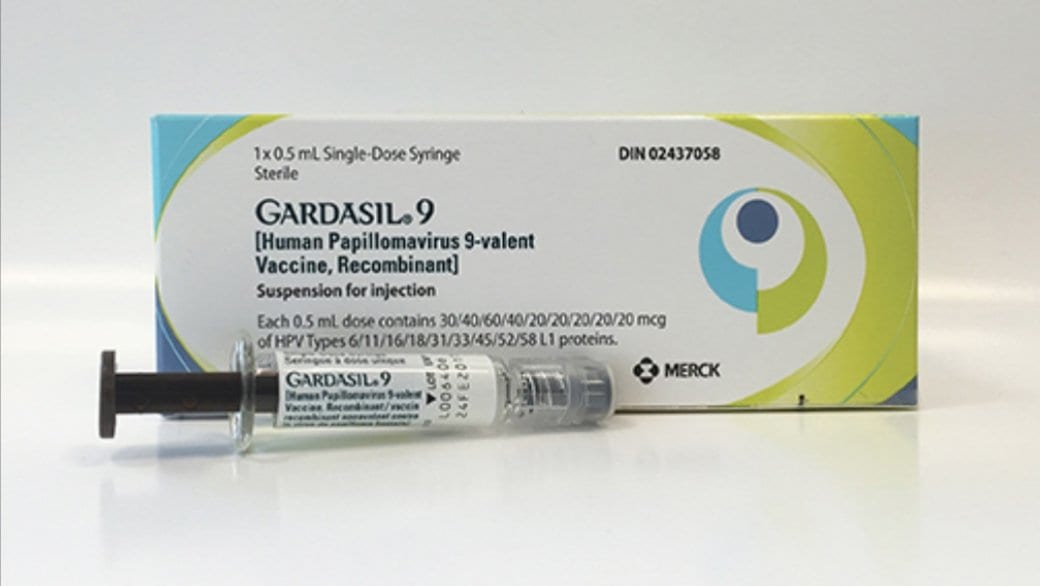Spencer Chandra Herbert says the BC Liberals’ decision to offer free HPV vaccines to gay boys and young men doesn’t go far enough.
“If you are a boy in elementary school or high school and are at risk of HPV you’d have to come out of the closet to parents, the school or a doctor and say ‘I’m at risk,’” Chandra Herbert says.
Not to mention the fact that these boys would have to know they’re at risk in the first place, he adds.
HPV stands for human papillomavirus and is a common sexually transmitted infection that can develop into cervical, anal and other cancers. Getting vaccinated against HPV minimizes your chances of getting the virus and the cancers related to it.
After years of offering free HPV vaccines to all girls in Grade 6, the BC government finally extended free coverage in September 2015 to gay and bisexual boys between the ages of 9 and 26 — “including those who may not yet be sexually active and are questioning their sexual orientation.”
Gay men older than the 26-year-old cutoff age will still have to rely on private insurance or pay out of pocket — even though HPV is thought to cause at least 80 percent of anal cancer.
Chandra Herbert says the HPV vaccine should be provided to all boys in the same way it’s provided to all girls. “We want to ensure that boys have good quality health,” he says. Providing the HPV vaccine free to all boys helps protect everyone from HPV transmission by increasing herd immunity, he notes.
“And if you care about human rights — and forcing kids to out themselves to get it — you approve the vaccine being available for boys and girls, women and men,” he says.
According to a HealthLink BC document, at least one of the available HPV vaccines (Gardasil) is recommended for all boys and men ages 9 to 26. It’s also recommended for men 27 years and older who have sex with men, and adult women up to 45 years old.
But without coverage, gay men are less likely to get protected against HPV, a recent survey from the Health Initiative for Men (HIM) suggests.
In 2015 HIM surveyed 680 men who have sex with men in the Vancouver area and found that 98 percent of those who had received the vaccine got it covered by their insurance or the government.
In other words, having the vaccine covered makes it far more likely that gay men will use it.
“We definitely seem to see that cost is a clear barrier for men getting the vaccination,” says HIM’s Joshua Edward.
The survey was part of HIM’s #GetGarded campaign launched in April 2015 to raise awareness of HPV infection and the availability of the HPV vaccine Gardasil.
Edward encourages all gay men under 27 to get the government-funded HPV vaccine in BC.
“We want to send a message for men under 27 to get their shots because it’s fully funded and they’re not going to pay anything out of pocket,” he says.
He also encourages gay men over 27 to get the vaccine. He says most men with private insurance are probably covered for the vaccine with a prescription from their doctor.
The physician lead of the Sexually Transmitted Infections/HIV program at BC’s Centre for Disease Control encourages gay men over 27 to get the HPV vaccine too.
Anal cancer isn’t a common cancer, Troy Grennan says, but gay men and HIV-positive men are disproportionately more likely to get it.
While only two out of 100,000 people are likely to get anal cancer in the general population, when you look at gay men the incidence climbs to 40 per 100,000, he says.
For HIV-positive gay men, that number climbs even higher to 100 cases per 100,000, he says.
“The numbers are fairly alarming,” he says.
Grennan estimates 85–90 percent of anal cancers are due to HPV.
“All the health minister has to do right now is say we’re covered,” Chandra Herbert says. “It’s just like how we ensure the girls can access the vaccine without having to out themselves. Just make it apply to all boys.
A spokesperson for the BC Ministry of Health says the ministry would consider the vaccine for inclusion in its publicly-funded schedule if Health Canada expands its Gardasil recommendation to include men over the age of 26.

 Why you can trust Xtra
Why you can trust Xtra


